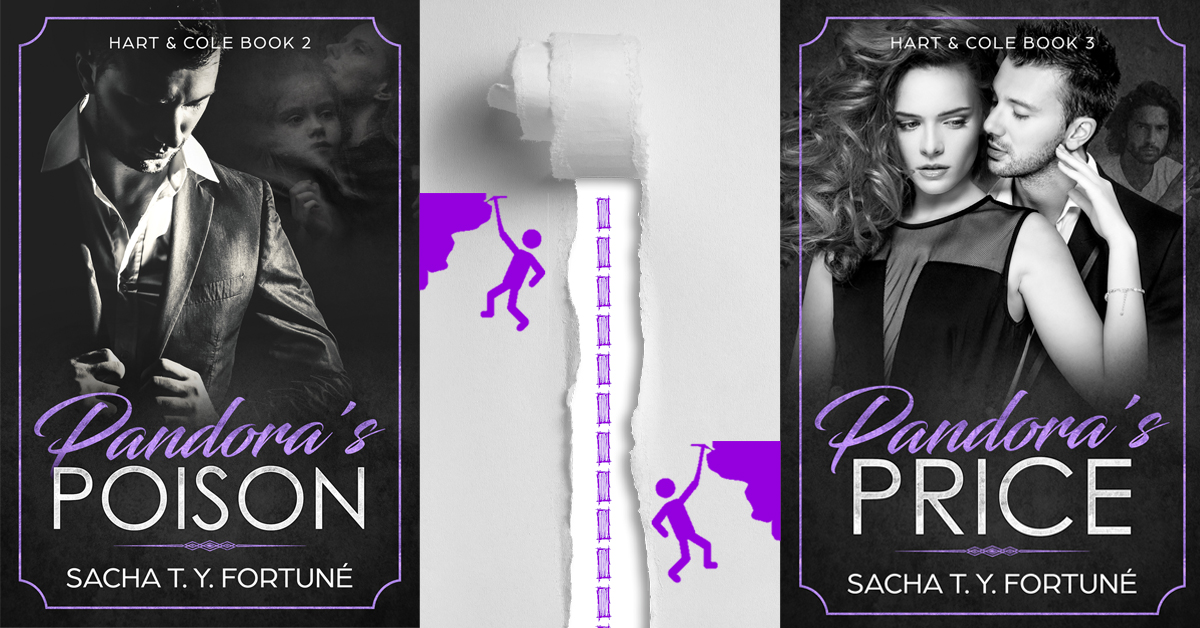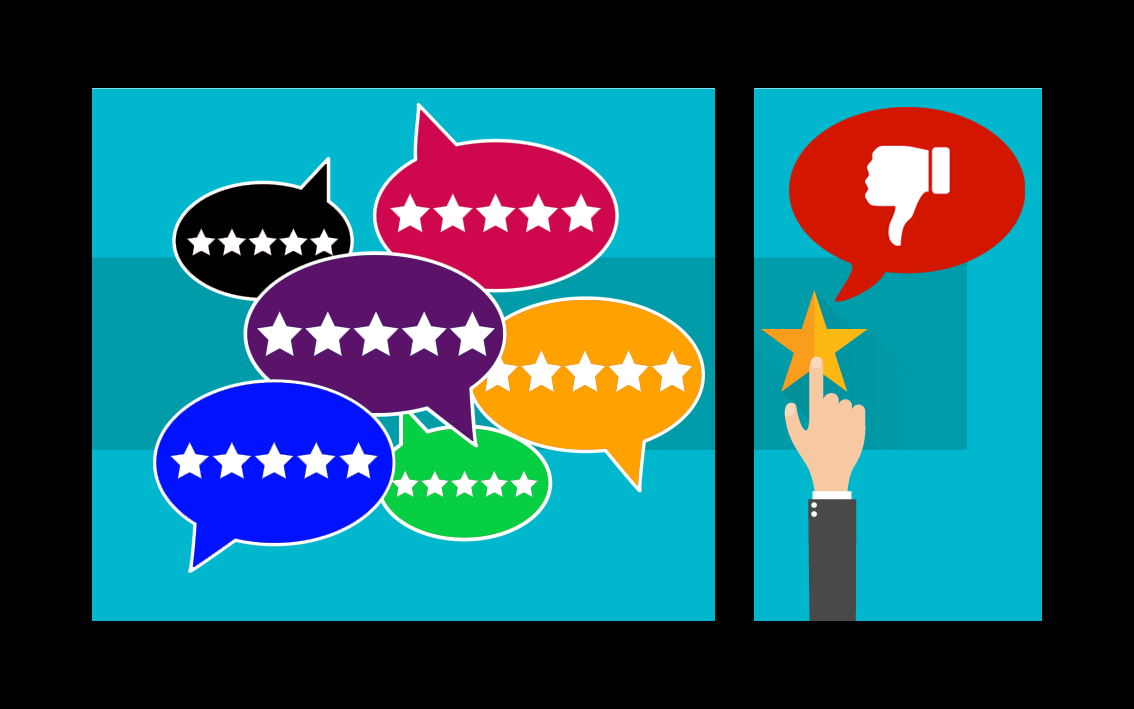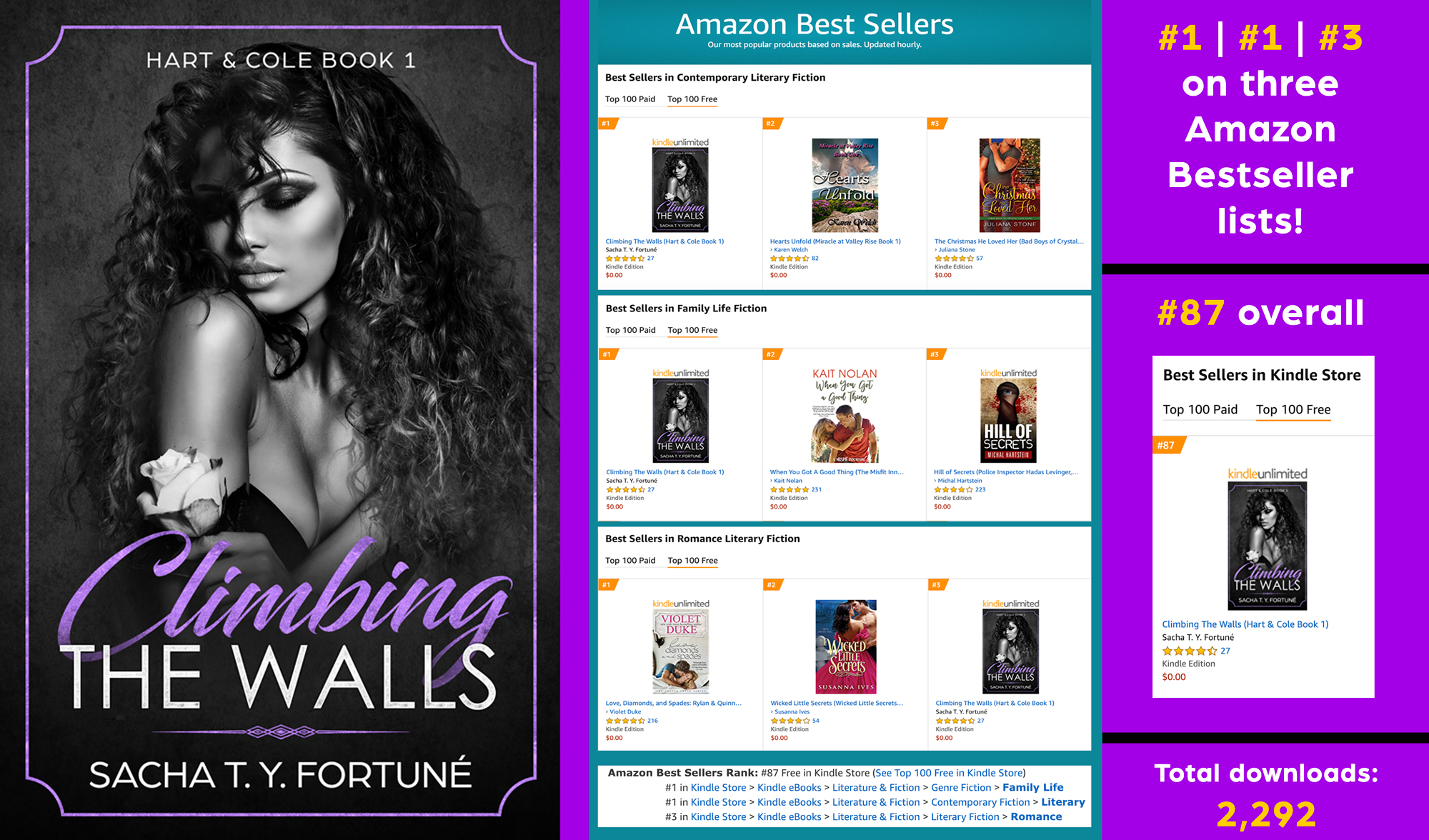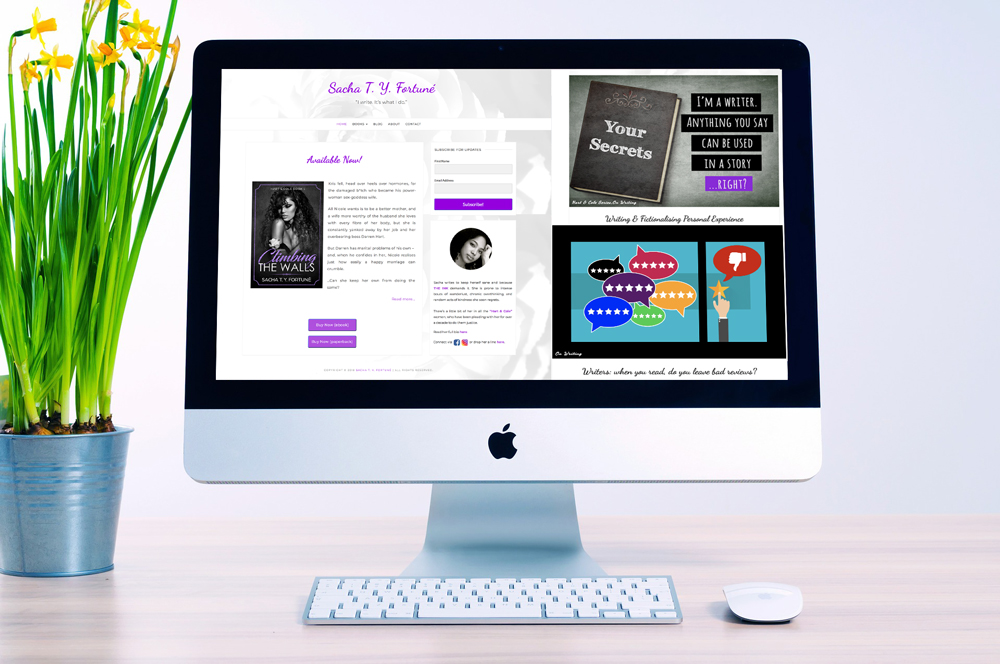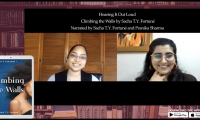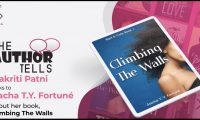Size Matters… Mini-books & Millennial Brains
“Right now, this is not the type of book I am looking to read… mostly due to the page count.”
Er… ok. It’s not an epic 2000+ page book I’ve written… but 500+ pages — most of which is dialogue, so there’s a lot of white space.
But the page count alone was my potential blogger-reviewer’s hard “no” from the jump.
…And unfortunately, it’s not something I can change at this point. 🙁
Fair enough, when I myself saw the physical proof copy I was like — yikes, that’s a little on the large side. But I’ve got larger books in my own library — both in height/width and length in terms of pages, so it didn’t scare me TOO much.
But this particular person wasn’t even looking at the physical book. She had no idea of trim size, or font size. She just saw the page number, and took a pass.
I’m wondering — worrying, rather — now, if that’s what readers may do, too.
Have I marketed myself out of the range of the average reader’s tolerance level for a novel length?
I decided to do a little research…
Size comparisons to popular texts
According to Amazon…
- Fifty Shades of Grey by E. L. James is 514 pages
- Fifty Shades Darker by E. L. James is 544 pages
- Fifty Shades Freed by E. L. James is 592 pages
- House Rules by Jodi Picoult is 560 pages
- Handle With Care by Jodi Picoult is 512 pages
- The Shining by Stephen King is 688 pages
- Salem’s Lot by Stephen King is 672 pages
- Pet Sematary by Stephen King is 560 pages
- The Firm by John Grisham is 544 pages
- A Time to Kill by John Grisham is 672 pages
- The Rainmaker by John Grisham is 608 pages
…And let’s not go into the epic novels such as the Game of Thrones, where Book 1: A Song of Ice and Fire clocks in at a whopping 864 pages.
Of course, these were all traditionally published novels where the publishing house would have had a say in the final product… and thank God no one told any of these authors, “Yeah… er, pal… you really need to just chop your story down…”
When you’ve already got a major engine running your show, you don’t have to worry too much about length.
Size is just a number, as they say. Or at the very least — you the author won’t need to worry; someone else will do that for you!
However, when it comes to the independent self-published authors, and ebooks, it’s a whole different story.
Ebook – short by nature?
According to an article on The Huffington Post:
The cold fact is, ebooks by definition are cheap, and however many words you write, you will only be able to charge a small amount for it online. There is little point in writing a door-stopping 200,000-word opus, if you can only charge $2.99 for it.
Rather than spending a year or more producing one full-length title, it may be better to spend that time writing a sequence of three or four shorter eBooks of, say, 20,000 words each. In marketing terms, publishing four times in a year is better than publishing just once.
So if you do want to dive head-first into self-publishing your work as an e-book, it’s in your best interest to “think small”.
In fact, “thinking small” is precisely how Amazon pushes it, as the printing cost gets astronomical if your book is thick. Check Kindle Direct Publishing costs here.
…But my stories didn’t have ebooks or the millennial generation in mind, when I started writing them…
…And now I have to retro-fit to suit?
Rookie publishing mistake… maybe.
Self-publishing and the size conundrum
When you self-publish (or any kind of publishing, really), as this article on MagnoliaMediaNetwork points out, it’s obvious that:
The longer your book, the more expensive it is to produce. A book that costs more to produce must sell more copies before it becomes profitable.
So, while a larger book justifies a larger retail price, as an indie author/publisher, that’s unfortunately not how it works. You have to consider your reader’s attention span and willingness to:
(1) Read a long book
(2) Pay a buck or two extra for a longer book
Unfortunately, this is the one time that it pays to be smaller.
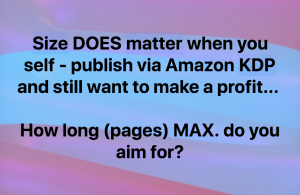
I tossed out the question to some of my new comrades on various Facebook writer groups, and got a range of responses.
While, of course, in theory the number of pages doesn’t really matter; it should be more about the content… in reality, some of them admitted that most of the books they’ve read as ebooks were about 150-200 pages.
Yikes… I’m still getting a feel of the characters by then! Nothing’s happened yet!
In terms of pacing, I myself prefer to feel like I’m invested in these characters I’m reading about, before their entire life changes in Chapter 2!
Write till the muse says stop!
Generally, I write until the story feels finished, then tighten up where I can, but apparently that’s just not the way to do it in today’s world.
A fellow author admitted she started each book as an independent work, and ended up with two trilogies! She felt “forced” by modern-day guidelines to chop her work up for the best market-ready approach.
Hmm… should I do this too?
Okay, I’m not in this for the money. I know this.
I’m in this to share my stories, to share my characters, and to fall in love with them all over again when others get to know them.
I don’t expect to become a huge success overnight. Maybe that may not happen at all. And that’s okay.
But if my readers — some of which, of course, will be millennials (and I myself am one!) — don’t want to even read the book because it’s too long… Houston, I think we have a problem.
Well, the cat’s out of the bag with Book 1, and I don’t want to cry over that split milk.
I already know Book 2 is longer than Book 1, and had enough tears over cutting down one of my favourite characters!!!
Maybe I can chop Book 2 up. ***Oh, the horror!***
BUT… does that mean I get to rebuild/re-flesh-out Lee? ***YAY!!!***
(But then I’ll end up with two long books for “Book 2″… lol…)
…And I’ll need to stop calling it “Book 2″… it’ll be Book 2 & 3… though to ME it’s still one story, Darren and Luisa’s story. But to everyone else, it’ll be separate entities…
Oh, and I’ll need another book cover. And another name. OMG!
For now, it’s just a thought. But having all these thoughts means… back to the editorial board… 🙁

